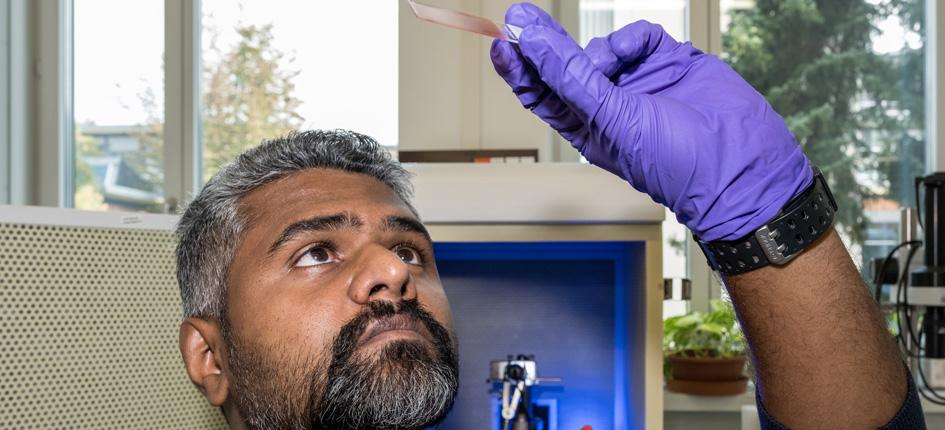Peter Nirmalraj, a researcher at the Swiss Federal Laboratories for Materials Science and Technology (Empa), is on the lookout for signs of dementia in the blood. As part of a successfully completed pilot study, Nirmalraj has, according to a press release issued by Empa, detected a pattern in the patients used as test subjects: those suffering from Alzheimer's disease had large amounts of protein fibers made up of beta-amyloid peptides and tau proteins. These proteins were able to assemble into fibers several hundred nanometers long. In contrast, Nirmalraj, who works out of Dübendorf in the canton of Zurich as well as St.Gallen, counted only a handful of fibers on red blood cells in healthy test subjects.
It was already known that both proteins are more frequently found in the bodily fluids of dementia patients. However, their exact role in neurodegenerative diseases has not yet been fully deciphered. The technologies developed by Nirmalraj are not only able to determine the total volume of these proteins, but also provide crucial visible insights into the differences with regard to the shape and condition of the protein accumulations. For his blood observations in the nanometer range, Nirmalraj uses atomic force microscopy (AFM), and has produced a video to outline and explain his approach.
Together with neurologists from the Cantonal Hospital of St.Gallen, Nirmalraj analyzed blood samples of 50 patients in addition to 16 healthy people. He had no prior knowledge as to the state of health of the people to whom the samples belonged. “This was the only way to make sure the interpretation of the data remained objective”, Nirmalraj explains. His findings have now been published in the specialist journal “Science Advances”.
If a valid blood test can be successfully developed on the basis of this method, then “people with suspected Alzheimer's would be spared the unpleasant puncture of the spinal canal in order to be able to diagnose the disease reliably”, Nirmalraj states. However, there is still some way to go before this prospect is a reality: the next step will involve Nirmalraj and his team expanding and corroborating the clinical data basis.







